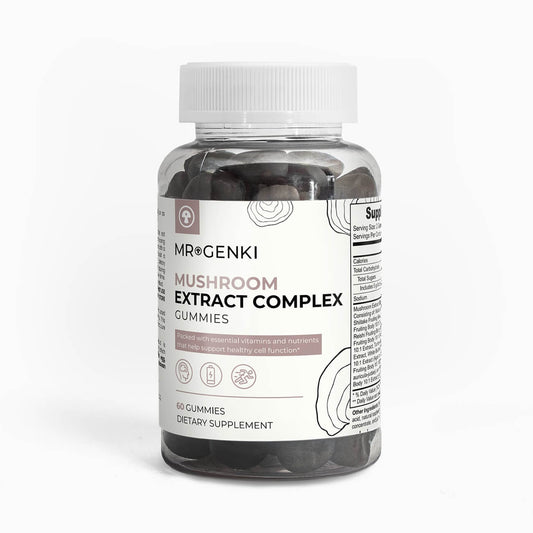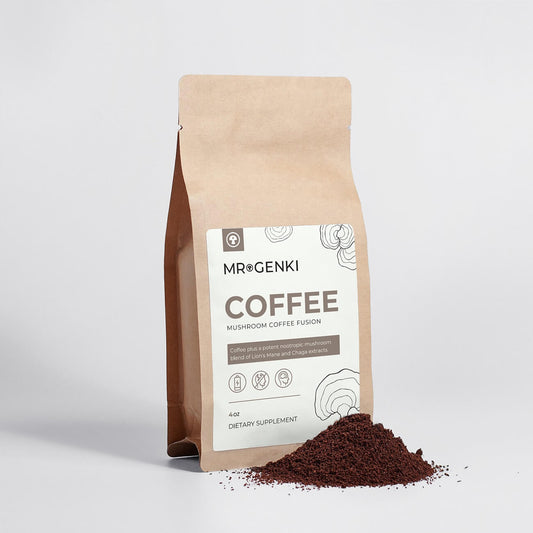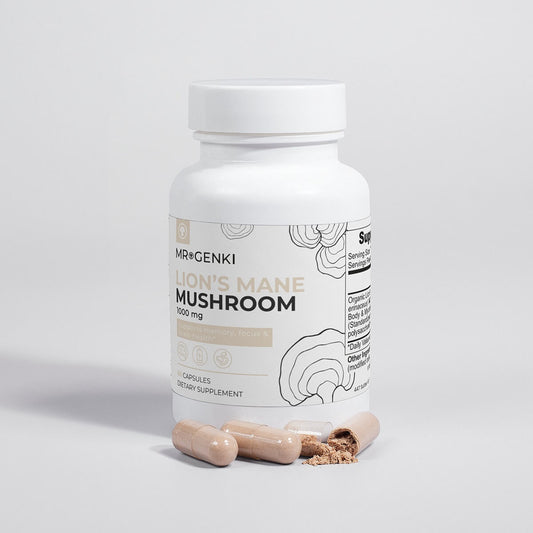In today's fast-paced world, quality sleep is essential for maintaining overall health and well-being. Unfortunately, many people struggle with getting deep, restful sleep.
Sleep aids can offer a solution, but with so many options available, it can be challenging to determine which is best for you.
From natural remedies to synthetic options, this article explores various sleep aids, their benefits, and how to use them safely.
Key Takeaways Table
| Sleep Aid | Type | Benefits | Potential Side Effects |
|---|---|---|---|
| Melatonin | Natural | Regulates sleep-wake cycles | Drowsiness, headaches |
| Valerian Root | Natural | Improves sleep quality | Headache, dizziness |
| Chamomile | Natural | Promotes relaxation | Allergic reactions |
| Lavender | Natural | Enhances sleep through aromatherapy | Skin irritation (topical use) |
| Passionflower | Natural | Reduces insomnia | Dizziness, confusion |
| Magnesium | Natural | Regulates sleep | Digestive issues |
| Diphenhydramine | Synthetic (OTC) | Quick sleep induction | Dry mouth, urinary retention |
| Doxylamine | Synthetic (OTC) | Effective sleep aid | Drowsiness, dry mouth |
| L-theanine | Natural Supplement | Improves sleep and focus | Headaches, dizziness |
| Reishi Mushroom | Natural | Reduces stress, promotes sleep | Digestive issues |
| Ashwagandha | Natural | Reduces stress, improves sleep | Stomach upset |
| Lemon Balm | Natural | Reduces insomnia | Nausea, abdominal pain |
Understanding Sleep Aids
Sleep aids come in various forms, including natural remedies, over-the-counter (OTC) options, and prescription medications. It's essential to understand the differences and potential risks associated with each type.
- Natural Sleep Aids: These include herbs, supplements, and foods known for their sleep-promoting properties. They are generally considered safer for long-term use.
- Synthetic and OTC Sleep Aids: These medications are readily available without a prescription and can be effective for occasional use but may come with side effects.
- Prescription Sleep Aids: Typically stronger and used under a doctor's supervision, these are for severe sleep issues but are not covered in this article.
What is the best natural sleep aid?
Melatonin
- What it is: A hormone that regulates sleep-wake cycles.
- How it works: Signals to the brain that it's time to sleep.
- Benefits and Side Effects: Effective for jet lag and shift work. May cause drowsiness and headaches.
Valerian Root
- Description: A herb traditionally used to improve sleep quality.
- Benefits for Sleep: Can reduce the time taken to fall asleep and improve sleep quality.
- Research Findings: Studies suggest it can be effective, but more research is needed on long-term use.

Chamomile
- Traditional Use: Commonly used as a tea to promote relaxation and sleep.
- Impact on Sleep Quality: Contains antioxidants that may help improve sleep.
-
Studies Supporting Efficacy: Research supports its use for mild sleep issues.
Lavender
- Aromatherapy and Sleep: Known for its calming scent.
-
Scientific Backing: Studies show that lavender can help improve sleep quality.
Passionflower
- Sleep-Promoting Properties: Used for insomnia and anxiety.
-
Research and Usage: Evidence suggests it can help improve sleep quality.
Magnesium
- Role in Sleep Regulation: Essential mineral that helps regulate sleep.
-
Benefits and Recommended Dosage: Supports deep, restful sleep. Recommended dosage varies.
Top Synthetic and Over-the-Counter Sleep Aids
Diphenhydramine (Benadryl)
- Overview: An antihistamine that can induce sleep.
- Effectiveness and Side Effects: Effective for short-term use but can cause dry mouth and urinary retention.
Doxylamine (Unisom)
- Description: Another antihistamine used as a sleep aid.
-
Usage and Potential Risks: Effective but can cause drowsiness and dry mouth.
Best Sleep Supplements for ADHD
L-theanine
- Benefits for ADHD and Sleep: Helps improve focus and relaxation.
-
Supporting Research: Studies indicate it can be beneficial for those with ADHD.
Magnesium Glycinate
- Why It's Beneficial for ADHD: Helps calm the nervous system.
-
Sleep Benefits: Supports deep, restful sleep.
Which mushroom is best for sleep?
Reishi Mushroom
- How It Aids Sleep: Known for its calming effects.
- Studies and Traditional Use: Used traditionally to promote relaxation and sleep. Studies support its effectiveness.
- Reishi Mushroom Sleep Aid
Lion's Mane
-
Cognitive Benefits and Sleep Improvement: Supports brain health and can improve sleep quality.
Does Reishi Mushroom Help with Sleep?
Reishi mushroom (Ganoderma lucidum), often referred to as the "Mushroom of Immortality," has been a staple in traditional Chinese medicine for centuries.
Known for its myriad health benefits, Reishi is particularly acclaimed for its potential to improve sleep quality and promote relaxation.
But how exactly does Reishi mushroom help with sleep? Let's delve into the science and traditional uses behind this powerful fungus.

How Reishi Mushroom Aids Sleep
-
Calming Effects: Reishi mushroom contains triterpenoids, polysaccharides, and peptidoglycans—compounds known for their calming effects on the nervous system. These compounds can help reduce anxiety and stress, which are common culprits behind insomnia and poor sleep quality.
-
Anti-Anxiety and Anti-Stress Properties: The adaptogenic properties of Reishi help the body adapt to stress and exert a normalizing effect upon bodily processes. This makes Reishi particularly effective in managing anxiety and promoting a sense of calm, both of which are essential for restful sleep.
-
Immune System Support: Reishi's immune-boosting properties indirectly contribute to better sleep. A healthy immune system can reduce the frequency of sleep disturbances caused by illness or inflammation, leading to more consistent and restful sleep.
-
Anti-Inflammatory and Antioxidant Effects: Chronic inflammation and oxidative stress can negatively impact sleep quality. Reishi's potent anti-inflammatory and antioxidant properties help mitigate these factors, promoting a healthier sleep environment.
Scientific Evidence Supporting Reishi Mushroom for Sleep
Several studies have investigated the potential sleep-enhancing effects of Reishi mushroom:
-
A study published in the journal Phytotherapy Research found that Reishi extract improved sleep quality and reduced fatigue in a group of patients with neurasthenia (a condition characterized by physical and mental exhaustion).
-
Another study highlighted in the Journal of Ethnopharmacology demonstrated that Reishi mushroom extract exhibited sedative effects in mice, supporting its traditional use as a sleep aid.
These studies suggest that Reishi mushroom may indeed be effective in improving sleep quality, although more research is needed to fully understand its mechanisms and efficacy in humans.
Traditional Use of Reishi for Sleep
Reishi mushroom has a long history of use in traditional Chinese medicine, where it is known as "Lingzhi." Traditionally, it has been used to calm the mind, reduce stress, and promote restful sleep. It is often consumed as a tea, tincture, or in powdered form.
What is the strongest herb for sleep?
Ashwagandha
- Sleep Benefits: Reduces stress and promotes restful sleep.
- Scientific Support: Backed by studies for its calming effects.
Lemon Balm
- Role in Reducing Insomnia: Calms the nervous system and reduces sleep disturbances.
-
Research Findings: Evidence supports its use for improving sleep.
Comparing Sleep Aids: What is Better than Melatonin?
Effectiveness and pros and cons of various sleep aids compared to melatonin:
- Melatonin: Effective for regulating sleep cycles.
- Valerian Root, Chamomile, Lavender: Offer additional relaxation benefits.
-
Synthetic Options: Effective but with more side effects.
Safety and Long-Term Use of Sleep Aids
- Is it Safe to Take Sleep Aids Every Night? Generally, natural sleep aids are safer for long-term use. Synthetic options should be used sparingly.
- Best Practices for Safe Use: Start with the lowest effective dose, avoid mixing with alcohol, and consult with a healthcare provider.
- Potential Risks and Side Effects: Natural aids typically have fewer side effects, while synthetic ones can cause dependency and other health issues.
__________
Conclusion
Finding the best sleep aid depends on your specific needs and health conditions.
Natural options like Reishi mushroom, magnesium, and herbs offer safe, long-term benefits without the risks associated with synthetic sleep aids. Always consult with a healthcare provider to choose the best option for you.
For more information and to explore our range of sleep aid products, visit MrGenki.













